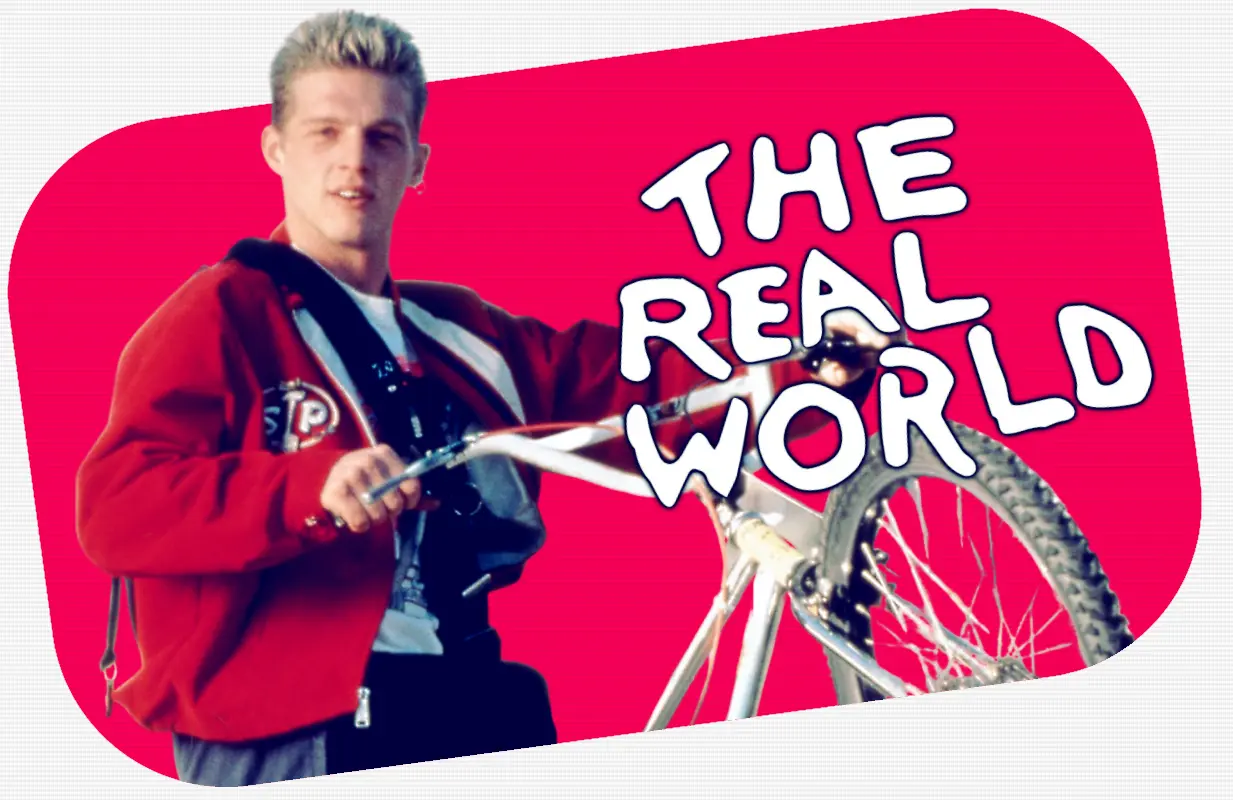The Real World's Puck Was the Alpha Villain of Reality TV
-
 Puck on The Real World (Photo: MTV/courtesy Everett Collection)
Puck on The Real World (Photo: MTV/courtesy Everett Collection)What we now consider reality television began with MTV's The Real World, and throughout the '90s, until Survivor premiered, it served as the template. Besides Cops or the many Cops knockoffs that littered the nooks and crannies of cable and syndication, reality TV in the '90s was largely candid in nature, typified by The Real World, Taxicab Confessions, and Road Rules (which in the early seasons was just The Real World in an RV). Out of this era came one of the most archetypal and memorable reality villains of all time: The Real World's David "Puck" Rainey.
The threshold for villainy in the early days of the genre wasn't what it is today, when you have to pretty much commit a federal crime (or cheat on your live-in girlfriend, which to some audiences is the same thing) to stand out from the crowd. The bar was lower back then, but Puck soared over it on his messenger bike in the The Real World Season 3. Rolling up to the show's San Francisco townhouse after having been arrested and hit by a car earlier that day, Puck made the exact impression he wanted to. Everything about him, from scabs on his face to the aggressive body odor he was so proud of to his habit of eating food (including community items like peanut butter) with his fingers, was meant to project the persona of an IDGAF bohemian who knew the secret of life — and it was just to be Puck, ideally as loudly as possible.
This version of Puck was undoubtedly the genuine article, but it was also a posture. You could tell by how often he complained about how his roommates were keeping him "at a five" when he wanted to crank himself up to 10. From the second he entered the house, Puck was on a mission to put his roommates on edge. "I didn't come here to make friends" was a phrase that entered the reality TV lexicon a few years after Puck's season of The Real World, and it's been mostly deployed in the context of competition shows in which the contestant has their eyes on nothing but the prize. Puck managed to radiate "I'm not here to make friends" energy on arguably the one show where you are there to make friends.
The opening riff of The Real World declared its purpose to get to the truth of what happens "when people stop being polite and start getting real." Implicit in that statement of purpose is the idea that these people started by being polite; that the cast members were entering this project from a sincere desire to connect and understand each other. In that respect, Puck's determination to be the most confrontational version of himself was actually defying the entire ethos of the show. Still, MTV and Bunim-Murray Productions couldn't get enough of him; Puck’s repulsiveness made it impossible to look away. His in-your-face crudeness wasn't as impactful as Pedro Zamora's AIDS activism, but Puck was still a big contributing factor to The Real World: San Francisco becoming a landmark season of television.
There are plenty of awful things about Puck, including multiple arrests over the years for domestic abuse and drunk driving. But even just within the Real World, Puck was a bad guy. Perhaps his worst quality on the show was the way in which he used his self-aggrandized "no shirt, no showers, no problem" persona to denigrate his fellow cast members. His most frequent target was the late Pedro, whose struggle with AIDS and determination to humanize those diagnosed with the disease was met with outright scorn by Puck. "It's all AIDS, AIDS, AIDS, gay, young, AIDS," Puck said then. That was the soundbite that got the most play, but he followed it up with the more telling, "There's nothing there for me." Pedro's experience of AIDS simply wasn't interesting enough for Puck. It didn't pass muster.
Puck’s presence was ultimately so offensive that his fellow cast members asked him to leave the house mid-season, and his pride was wounded enough to oblige them. Accidentally presaging the era of vote-out reality television is just one of the ways that Puck's brand of villainy is the perfect emblem for this early era of reality TV. Just as The Real World influenced every reality show that came after it, Puck's toxic narcissism would become the standard for so many future reality TV villains. Shades of him can be seen in everyone from the narcissistic Real Housewives to the bullies on Survivor. His bloodied forehead and snot rockets are a world away from the glam refinement of Selling Sunset's Christine Quinn. His boho freak existence is nowhere to be found in the privileged preppiness of Spencer Pratt. But that disdain for anyone who might share his spotlight remains.
Joe Reid is the senior writer at Primetimer and co-host of the This Had Oscar Buzz podcast. His work has appeared in Decider, NPR, HuffPost, The Atlantic, Slate, Polygon, Vanity Fair, Vulture, The A.V. Club and more.
TOPICS: David "Puck" Rainey, The Real World, Reality TV